In the realm of reptiles, Leopard Geckos often spark a curious debate: are they smart or not? My time spent with these lizards has led me to a conclusion that might disappoint some folks.
Are Leopard Geckos Smart Or Dumb?
Often, keepers use the word “derpy” to describe them, hinting at a lack of brainpower. This doesn’t necessarily mean they’re not intelligent, but rather their smartness is difficult to measure, especially when you compare them to other lizards known for their ability to problem solve and learn.
It’s known that their actions are far more instinct-driven. They don’t target challenges like the smartest reptiles might. Getting closer to understanding their cognitive abilities requires acknowledging that every species has unique capabilities and everything we need to know might not align with human definitions of intelligence.
Table of Contents
What Makes Reptiles Intelligent?
To figure out if a Leopard gecko is smart or not so smart, we must dive into understanding the difference between intelligence and instinct, and what these terms mean and tell us about their behaviour.
Instinct Vs Intelligence
When deciphering the intelligence of leopard geckos, Nature.com provides a technical definition, describing intelligence as behaviours adapted to peculiar circumstances and individual existences. Unlike the smartest snakes like King Cobras, which can drink from water bottles, demonstrating a high level of intelligence and brains, leopard geckos often rely on instincts.
Their natural behaviours, such as reacting to specific stimuli in their environment, like identifying prey or a female, are impressive but fall into the category of instinctual actions. Studies set up to measure their cognitive abilities sometimes fail to acknowledge this distinction, labelling them as dumb when they fail to bite a mealworm after several tries, as seen in a video. This design of study may not be the perfect way to measure their intelligence.
The first step in any conversation about leopard gecko intelligence is to recognize the common signs of their cognitive abilities. These include basic but significant actions like recognizing their owner, reacting to signs that signal meal time, and adapting to repeated situations in their enclosure, such as not falling off the same ledge multiple times in a row.
These behaviours demonstrate their capability to figure out and adapt to their surroundings, albeit in a more subtle way than more overtly intelligent reptiles. Calling them derpy or cute oversimplifies their complex nature, as understanding reptile intelligence requires looking beyond traditional metrics and acknowledging the instinct vs. intelligence debate.
9 Signs Which Prove That Geckos Are Smart
Geckos exhibit an array of sophisticated cognitive skills and behaviors, indicative of their intelligence. Here are some notable traits that highlight the smartness of geckos:
1. Danger Avoidance
Geckos, by nature, actively engage in complex behaviour to avoid danger, offering examples of what might be considered street-smart intelligence. An intriguing aspect, often discussed among scientists and formally referred to as keratophagy,
is their habit of ingesting slough during shedding. This behaviour, observed both in the wild and captive settings, helps geckos to not expose themselves to potential predators. The reasons behind this could be many, but primarily, it ensures they don’t leave a track that could lead predators down to them.
Another aspect I’ve noticed is their reaction when cornered; much like a cat, they can move their tail to distract and scan their surroundings for an escape route, showing an awareness of their environment. This article aims to shed light on how these precious creatures feel when safe and secure, and how their natural instincts help them navigate potentially harmful situations. Such behaviours indicate a level of cunning and adaptability, often overlooked when considering their overall intelligence.
2. Self-Preservation
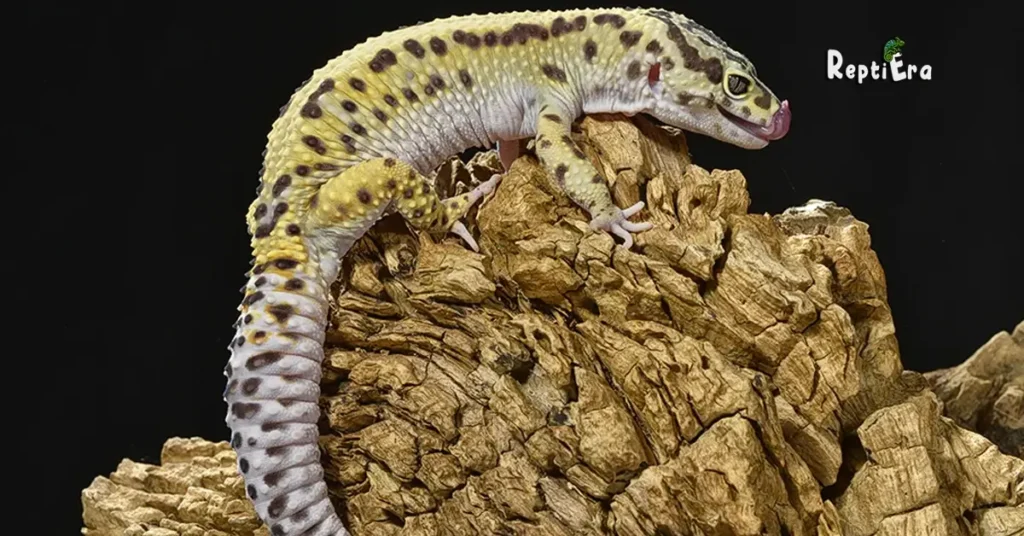
Geckos exhibit a notable form of intelligence in their consistent choice of self-preservation over risking their lives for food. This instinct to consider possible losses in dangerous situations, such as losing reserves due to tail dropping, highlights their survival strategy.
During times when food is scarce, instead of recklessly venturing out of rock crevices and burrows to hunt prey, they opt to stay hidden from predators. This careful balancing act between hunger and safety showcases their ability to assess risk and prioritize their well-being, a crucial aspect of self-preservation that underlines their intelligence in navigating the challenges of their environment.
3. Reproductive Behaviors
Female geckos have demonstrated a range of complicated social behaviours in the context of breeding and reproduction, which includes mate rejection, sperm retention, and cryptic female choice. Surprisingly, despite being considered primitive and mostly hormonal animals, these behaviours suggest that they are quite selective and smart, especially in their reproductive strategies.
Such intricate behaviours in mating rituals, often overlooked, offer a deeper insight into their cognitive abilities, challenging the simplistic view of them as mere instinct-driven creatures. This complexity in their reproductive choices underlines a level of intelligence that goes beyond basic survival instincts, indicating a more nuanced understanding of social dynamics within their species.
- Mate Rejection
- Sperm Retention
- Cryptic Female Choice
Related Post: WHY IS MY LEOPARD GECKO LICKING HIS BUM
4. Communication
Geckos have the remarkable ability to convey and comprehend messages through various means, which marks them as smart animals. They communicate not just vocally, but also physically, and through chemical cues like pheromones. This versatility in communication is often overlooked; the thing is, unlike humans, they don’t talk or communicate verbally, leading some to underestimate their abilities.
It’s crucial to understand that just because they don’t communicate in ways familiar to us doesn’t mean they are incapable of complex communication. Their methods, albeit different from human speech, are sophisticated and suited to their environmental needs, showing a depth of intelligence that is often unnoticed.
- Vocal communication
- Body language
- Chemical communication
5. Social Cognition
Even though most geckos prefer solitude, they have the capacity to process, remember, interpret, and use information about themselves and others, a skill referred to as social cognition, an important facet of animal intelligence. Contrary to what people believe, reptiles, including geckos, are not entirely incapable of socializing; their primarily solitary nature doesn’t preclude them from social interactions.
Additionally, while geckos do not possess a hippocampus – the part of the brain in charge of overall sociability in mammals – they have a structure that functions similarly, known as the medial cortex. This allows them to manifest social intelligence in ways including responding to social cues, gaze following, and nest guarding, showcasing that their social capabilities, though different, are indeed present and functional.
6. Spatial Awareness
A gecko is remarkably capable of navigating its surroundings due to its innate spatial awareness, a trait shared with both reptiles and mammals. They utilize visual cues to determine their location in relation to the environment, a skill essential for survival. For instance, when hunting prey in the wild, they can effectively return to their chosen shelters, indicating a mental mapping ability.
This involves creating landmarks in their minds to find out where to go, a navigation strategy that highlights their cognitive capabilities. This keen sense of spatial awareness, though different from human perception, is crucial for their daily activities and survival in various habitats.
7. Object Discrimination
In general, geckos demonstrate a remarkable ability to distinguish between themselves, other geckos, prey, and various materials in their environment, which is a significant sign of high-level intelligence. This skill involves the ability to discriminate between living and non-living objects, a task that requires advanced visual cognition. Such discernment is not only indicative of their perceptual capabilities but also reflects their adaptability and survival skills.
Note: This ability to differentiate between various elements in their surroundings showcases a level of awareness and cognitive processing that goes beyond basic instinctual behaviour, highlighting the complexity of their interactions with the world around them.
8. Flexibility in Learning
Geckos are highly capable of learning, both by themselves and by watching others, showcasing sufficient proof that they are indeed smart animals. This ability allows them to adapt to changes in their environments and effectively resolve problems they face. Their learning process isn’t just limited to trial and error; it involves observation and imitation, indicating a higher level of cognitive processing.
This flexibility in learning strategies underlines their ability to navigate and adapt to various scenarios, making them more resourceful and intelligent than they might appear at first glance. Their adeptness in learning from both direct experience and the actions of others reflects a versatile approach to problem-solving and adaptation.
9. Hunting and Foraging
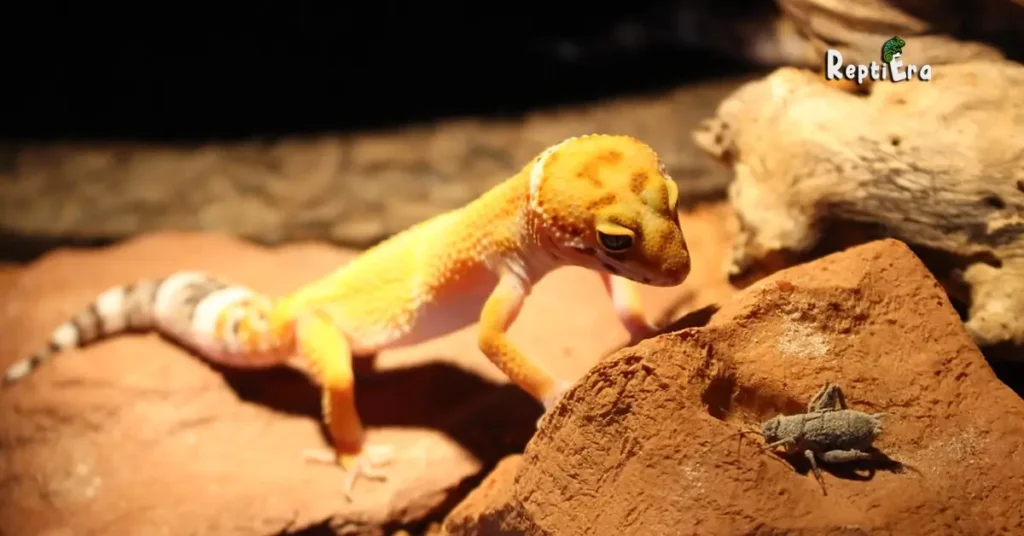
One of the most fundamental ways in which geckos display intelligence is through their methods of hunting and foraging for food. This activity involves a variety of cognitive skills and processes, including attention, decision-making, and sensory discrimination. Acquiring food is not an automatic task for geckos, whether in the wild or captive settings.
They don’t just magically catch insects or find edible fruits out of thin air; it requires strategic thinking and planning. Unlike us, they can’t readily stroll into a market to buy groceries. Instead, they rely on their natural instincts and learned behaviours to locate and capture their prey, showcasing their adaptability and problem-solving abilities in their quest for sustenance.
How Smart Are Leopard Geckos?
Now, more than ever, there’s a better definition emerging of leopard gecko intelligence. We often try to figure out if these cute, little lizards are really as smart as some folks insist. Commonly known as leos, they’re believed to be more clever than we typically give them credit for.
This curiosity leads many to wonder why their seemingly simple actions might actually reflect a deeper level of cognitive ability. Understanding their intelligence isn’t just about labelling them as smart or not; it’s about appreciating the subtle complexities in their behaviour, which might often go unnoticed.
Does Recognizing Sex Pheromones Make Leopard Geckos Smart?
One of the more common arguments regarding leopard geckos’ intelligence is their ability, especially in males, to smell specific sex pheromones of a female. This skill might seem impressive compared to humans, who aren’t known for such mind-blowing abilities to subconsciously detect the pheromones of their species.
However, this capability falls clearly in the category of instinct rather than learned behaviour. It doesn’t necessarily suggest they are smarter than other species that have figured out how to reproduce. The same holds true for their territorial act during the mating process. These behaviours, while fascinating, don’t just fill the brain’s bucket, but instead, they reinforce the complexity and depth of instinctual actions in reptiles.
Some Leopard Geckos May Recognize Their Owners
In the ongoing debate about reptilian intelligence, some folks claim that the leopard gecko specifically recognizes its owner, which is a good test of their brain power. While it’s absolutely possible for these smart reptiles to pick up this habit, it often requires consistent interaction and sometimes food as a reward. This behaviour, however, is not universal among all leopard geckos.
Most may not demonstrate this ability, but the fact that some seem to recognize their owner is a significant step up in intelligence compared to other reptiles. This suggests a level of cognitive processing beyond basic instinctual responses, showing that leopard geckos, or leos, might have more nuanced capabilities than previously thought.
What About The Brain Cell Study?
Some folks refer to studies showing leopard geckos growing new brain cells as a sign of intelligence, but this interpretation doesn’t quite add up. While the study is great news for science, and ironically, these little creatures might hold the secret to healing injured or aged brains, it doesn’t necessarily mean they are smart.
The ability to regrow cells, like how they regrow their tail, isn’t a direct indication of cognitive ability. It’s more of a testament to their resilience and biological adaptability than their intelligence. This aspect of their biology is fascinating, but it requires a change in conclusions about their intelligence, as it’s a different type of cell growth, not related to their cognitive functions.
Have Leopard Geckos Been Part Of Other Studies?
Leopard Geckos have been the subject of various studies, some even published, that delve into their abilities. One such study focused on their ability to follow the gaze of other creatures, a phenomenon known as gaze following.
It’s intriguing because this behaviour is common in social creatures, but not common in lizards, which are traditionally asocial. This discovery suggests a level of intelligence in leopard geckos, challenging the notion that they operate purely on instinct. While humans often take for granted the ability to tell where someone is looking based on the position of their eyes, for leopard geckos, this represents a novel stimulus.
It’s hard to tell how much they understand about the world around them, but their response to such stimuli suggests a higher level of awareness than previously thought. It’s a reminder that there’s still a lot we don’t know about reptiles in general, and the line between instinct and intelligence in these creatures is often blurred.
The Case For Leopard Gecko Intelligence
Among the strongest points supporting leopard gecko brainpower is their ability to recognize their owners and react to specific stimuli in their environment. While this doesn’t suggest these critters are about to win a Nobel Prize, it does indicate a certain level of smarts.
Observing how they interact with their surroundings and respond to changes offers insights into their cognitive abilities. They might not be the most demonstrative pets, but these subtle behaviours are key indicators of their mental capabilities. Understanding and acknowledging these traits is crucial in appreciating the intelligence of leopard geckos, which extends beyond the basic instinctual responses typically associated with reptiles.
Why Do Some Leopard Geckos Seem So Dumb?
Now, looking at the other side, evidence suggests that leopard geckos aren’t the sharpest tools in the shed, but there’s a lot more to explain their seeming lack of brainpower and not being the brightest.
Leopard Geckos Have A Small Brain
In most cases, there’s a connection between the size of an animal’s brain and its intelligence, and the brain-to-body mass ratio plays a role, with humans having a relatively large brain in proportion to their body. However, Leopard Geckos don’t score high in this category, as one might expect, due to their small brain, which is proportionate to their body size.
While their brain power might not be on par with larger-brained species, it’s not a perfect excuse for underestimating their capabilities. Even small lizards like the little green anole have demonstrated impressive learning ability, suggesting that having a tiny brain is not always a disadvantage. In fact, in certain scenarios, it might offer an advantage in terms of energy efficiency and adaptability to their environment.
Also Read: DO LEOPARD GECKOS NEED BATHS
Inbreeding Hasn’t Helped Leopard Gecko Intelligence
While the leopard gecko ranks second only to the bearded dragon in popularity as a pet, this status is somewhat debatable due to massive inbreeding by breeders aiming to produce them quickly for the market.
This inbreeding process has not been kind to these lizards. Initially, they might have started as relatively smarter reptiles, but over generations, this practice has not helped them develop or enhance their intelligence. Instead, it has led to a stagnation, or even a decline, in their cognitive capabilities, raising concerns about the long-term impacts of such breeding practices on their overall health and intelligence.
Terrible Hunting Skills
When you watch a Leopard Gecko barely moving towards a mealworm, it’s a wonder how they survive in the wild. This excuse of hunting skills might lead to the thought that they are not particularly smart. However, this is more about adaptation than intelligence.
My personal experience with these creatures has shown that, unlike their wild counterparts, domesticated Leopard Geckos lack the urgency of survival, which is quite evident when you compare them to a Chihuahua, another animal that has strayed far from its ancestral roots due to hundreds of years of selective breeding. It’s intriguing to look at these animals and realize that what they’ve lost in natural instinct, they’ve gained in adaptability.
Their terrible hunting skills are less about capability and more about the lack of necessity, a product of domestication minus the intense pressures of the wild. This never ceases to amaze me, especially when thinking about their journey from fierce, independent hunters to being a step closer to a pet like a Chihuahua, minus the inbreeding challenges.
Poor Spatial Awareness
The surprise often comes when one has watched a video of Leopard Geckos seemingly lacking in spatial awareness, as they walk off ledges and tables during handling. It’s a peculiar sight, watching these reptiles, job-like, wandering towards the closest ledge only to fall several feet without any apparent concern.
This trait might lead people to believe these reptiles are not very brainy. However, their ability to survive such falls points to a different kind of intelligence. In my experience with Leopard Geckos, I’ve observed this behaviour as a lack of necessity for such awareness in their controlled environment, rather than a problem with their cognitive abilities.
When you test an animal for smart versus dumb based on a trait like this, it’s essential to consider human intervention in their natural behaviours. The absence of a natural threat in a domestic setting may have led to the evolution of their behaviour, rather than a lack of intelligence.
Leopard Geckos Are Social Creatures
It may come as a surprise to many, but Leopard Geckos are extremely social creatures, contradicting the common bias that associates social intelligence solely with animals like dogs, known for reading human cues such as face, tones, and body language. In contrast, Leopard Geckos do not evolve in settings where they need to read such complex signals, making them seem asocial in nature. However, having observed these lizards closely, including through a gaze study,
I find their social behaviour interesting. They may not know what they are doing in human terms, nor care if they offend someone, but that’s part of their charm as a lizard species. Their intelligence should not be measured against a human or a dog’s perspective, as their social interactions are tailored to their environment and needs, revealing a different but equally significant form of intelligence.
Also Read: HOW TO BOND WITH YOUR LEOPARD GECKO
The Case For Leopard Geckos Being Dumb
There is a stronger case on the side of leopard geckos not being the brightest bulb. This notion is based on evidence such as watching a little Leo repeatedly fail to bite a stationary mealworm, which makes one wonder what’s going on inside their tiny head. It appears that there’s not much complexity to their thought process, as their actions often lack the problem-solving skills seen in other creatures. This behaviour has led to a perception that these geckos, while endearing, may not possess significant cognitive abilities.
The Problem With Measuring Reptile “Intelligence”
As mentioned briefly earlier, there haven’t been many legitimate studies specifically focused on leopard geckos’ intelligence. Evolutionarily, reptiles are a primitive group of animals, dominated by wild instincts, making it tough to quantify their intelligence.
We often attribute human signs of intelligence to other species, but this is problematic, especially when it’s not measurable by verbal means. Scientists have used various methods, like assessing social behaviour, formation of habits, and responses to stimuli, but even these can fall short.
The brain size of reptiles has often been neglected in discussions about cognition, and the use of tools like the IQ test is difficult to apply to a lizard.
Human IQ tests don’t translate well to measuring reptile intelligence. Interestingly, leopard geckos are different intellectually from other gecko species for several reasons. Despite having small brains, they are one of the friendliest lizard species, making them excellent beginner reptiles, thanks to their calm and curious personalities.
Leopard Geckos’ Brains Compared To Other Reptiles
Leopard geckos, as small animals, have proportionately tiny lizard brains. In general, the larger the animal, the greater their brain size and capacity for learning. This doesn’t necessarily mean they are stupid or less intelligent than other reptiles of a similar size.
Unfortunately, some reptile experts and enthusiasts regard them as one of the least intelligent species among reptiles, but this belief might be oversimplified. Common pet reptiles, like leopard geckos, have been subject to inbreeding to meet the demand for various colour morphs, a process that has unfortunately bred out many of their natural instincts and characteristics, making them more docile and less able to protect themselves in the wild. This excessive inbreeding has also led to various health issues and, over time, potential brain damage.
Their spatial awareness is another area where they differ. Leopard geckos are not as spatially aware or as attuned to their surroundings as some other reptiles. It’s often noticed that they struggle with catching or even noticing live prey unless it’s placed directly in front of them, indicating a low level of spatial awareness.
They are also not as skilled at gauging distance or assessing dangerous situations, which are critical skills for survival in the wild. This lack of spatial awareness, however, shouldn’t be mistaken for a lack of intelligence but rather a different adaptation to their environment.
Recent Studies Of Leopard Gecko Intelligence

Critics are often unnecessarily harsh on the leopard gecko’s character, citing a lack of academic studies on the reptilian brain as an important factor in the minimal knowledge we have about their intelligence. This perspective has recently begun to change, as the world of animal biology is expanding its scope of research, particularly in areas previously overlooked, such as animal intelligence beyond mammals and birds.
Interestingly, a recent study on gaze-following behaviour in reptiles showed that leopard geckos can gain and interpret information using visual indicators. This evidence is a groundbreaking find, as leopard geckos have been largely regarded as social animals with few advanced cognitive abilities.
Additionally, other studies focusing on geckos as a group over the past 20 years have revealed that these lizards occasionally use loud vocalizations, such as chirps and barks, to communicate. This is a paradigm-shifting discovery for a group of reptiles long considered silent and primitive.
These findings suggest there is far more to these animals than initially thought by researchers. The consensus remains that leopard geckos aren’t going to win a contest for the most intelligent reptile soon, but perhaps with future studies, we will learn more about their intellectual capacity.
Does Your Gecko’s Intelligence Matter?
As mentioned earlier, quantifying intelligence, whether in humans or lizards like the leopard gecko, is a challenging and broad task. It’s a speculative topic that has evolved in recent years, especially as IQ tests for humans have become problematic and limited in measuring cognitive ability.
When it comes to reptiles, assessing their intelligence involves considering various factors, such as memory, social behaviours, reasoning skills, and the ability to plan. While these are fair measures of intellectual capacity in humans, they are not always reliable for animals that communicate and function differently, having evolved for distinct environments and social hierarchies. The attempt to measure a lizard’s ability to memorize numbers or speak a language is both futile and not an accurate measurement of their actual intelligence.
For pet owners, pondering whether their leopard gecko is regarded as dumb or smart can be an interesting exercise, but it shouldn’t be a cause for worry. These creatures may not fit conventional definitions of intelligence, but they exhibit unique behaviours and adaptations that are remarkable in their own right.
Speculating on their cognitive abilities offers an enriching perspective on the diversity of intelligence across species, reminding us that intelligence manifests in myriad forms, often beyond our traditional understanding.
Also Read: WHY IS MY LEOPARD GECKO ALWAYS HIDING
FAQs
Are geckos intelligent?
New research, published in the journal Animal Cognition, shows that geckos are more intelligent than once thought, especially in self-recognition – the ability to identify oneself. Unlike visual creatures like humans who are familiar with recognizing themselves in a mirror, geckos, being scent-oriented, exhibit intelligence in different, less obvious ways.
Do leopard geckos know their owners?
Yes, Leopard geckos can and are known to use their keen sense of smell to identify their owners, showing a level of recognition and familiarity. There have been cases where otherwise very docile geckos start biting when exposed to a new type of cologne or deodorant, as the unfamiliar smell makes them get defensive. This behaviour indicates their ability to distinguish between known and unknown scents, reflecting a form of intelligence and awareness.
Can leopard geckos hear you talk?
Particularly true when speaking to them while feeding at the same time, leopard geckos, like many house pets, can become naturally conditioned to the sound of their owner’s voice. Remember, leopard geckos and other reptiles have a keen sense of hearing, especially desert creatures accustomed to quiet environments, which enhances their ability to respond to auditory stimuli. This suggests that they are capable of recognizing and reacting to familiar sounds, including human voices.
Do leopard geckos have personalities?
Leopard geckos often sleep under rocks or hide during the day, but they become filled with personality at night, exhibiting unique behaviours. While they are not the most social pets, they prefer to explore and express themselves on their own time, often seen crawling and climbing throughout their habitat. This tendency to be active and inquisitive during their active hours showcases a range of personalities, differing from one gecko to another.
Does brain size determine animal intelligence?
Intelligence in animals is not solely determined by the size of an animal’s brain; it requires consideration of the whole brain, including the specific parts, their complexity, how they function individually and all together, as well as the processes they affect and manage. This approach acknowledges that intelligence is a multifaceted construct, influenced by various factors beyond mere size. This broader perspective provides a more nuanced understanding of how different animals, including leopard geckos, exhibit intelligence in their unique ways.
Why do people think that reptiles are not smart animals?
Many people hold the belief that geckos and reptiles in general are dumb because they fail to match the standards of human intelligence. Fortunately, more and more scientists are recognizing the flaw in this scientific approach to examining reptile intelligence. This shift in perspective is leading to a deeper understanding of reptilian cognitive abilities, challenging previous misconceptions about their intelligence.
Which lizard is the smartest?
There are claims that large-bodied lizards, like monitors and tegus, might be the smartest, but researchers remain uncertain as research on cold-blooded cognition is still in its infancy. It’s difficult to draw detailed comparisons or conclude a definitive cognitive ranking among reptiles in general, due to the varied and complex nature of their intelligence. This ongoing research highlights the need for a deeper exploration of reptilian intelligence across different species.
Are geckos sentient beings?
Yes, geckos are sentient, possessing the ability to feel emotions, demonstrate awareness, appraise risks versus benefits, remember objects and events, and evaluate themselves in relation to everything around them. This sentience reflects their ability to interact with their environment in a more complex way than mere instinctual responses. Their capacity for emotional responses and cognitive assessments indicates a level of consciousness and perception, affirming their status as sentient beings.
Certainly, geckos demonstrate sentience, characterized by their:
- Capacity to experience emotions
- Possession of consciousness
- Skill in evaluating risks against potential rewards
- Ability to recall objects and past events
- Proficiency in assessing their own position in relation to their environment.
Do geckos have feelings?
According to several recent studies, geckos, like most other reptiles, are capable of feeling a variety of negative and positive emotions. They do not readily move their facial muscles to express affective states, leading some keepers and breeders to mistakenly assume they are emotionless creatures. This misconception overlooks their subtle but real emotional range, reaffirming that geckos do experience feelings, albeit expressed differently from humans.
How long do geckos live?
Most gecko species can live for 20-30 years in captivity, with a few even known to have lifespans of over 40 years old. More specifically, different forest gecko species, which are closely related to Cupola geckos, have been known to live for several decades, particularly in regions like New Zealand. This longevity in various environments showcases their adaptability and resilience as a species.
Conclusion
In conclusion, the exploration into the intelligence of leopard geckos reveals a fascinating and complex picture. While they may not display intelligence in the same way humans or some other animals do, studies and observations suggest that they possess a range of cognitive abilities, from spatial awareness and object discrimination to social cognition and emotional capacity. Their ability to navigate their environment, recognize their owners, and respond to various stimuli indicates a level of intelligence that challenges the traditional view of reptiles as purely instinct-driven creatures. Therefore, dismissing leopard geckos as ‘dumb’ overlooks the nuanced and varied ways in which they interact with their world, displaying intelligence that is both unique and significant in its own right.
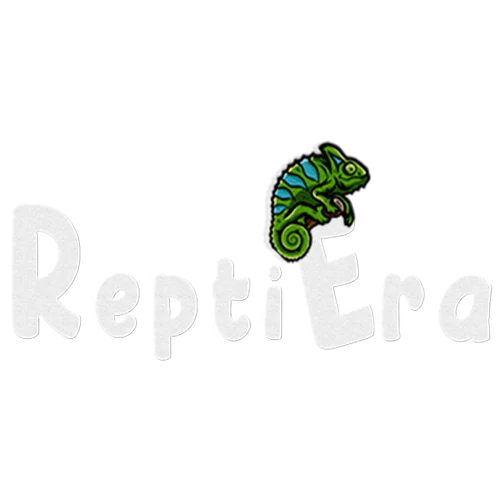
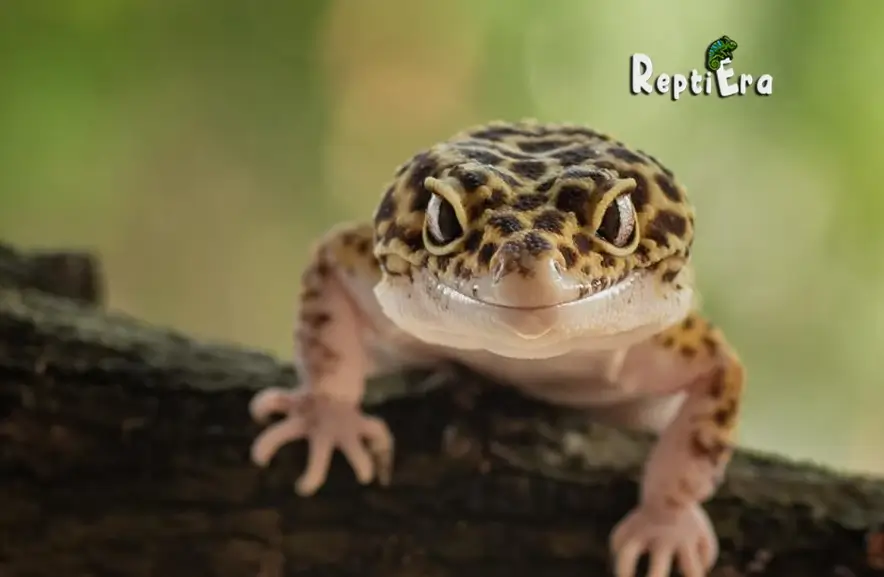
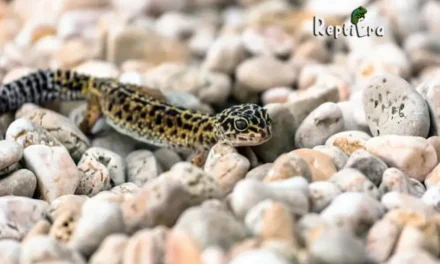
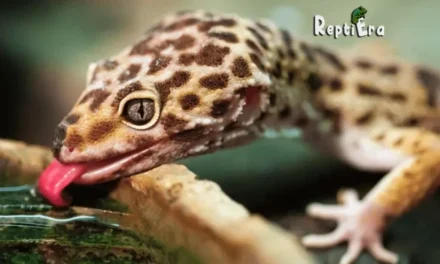
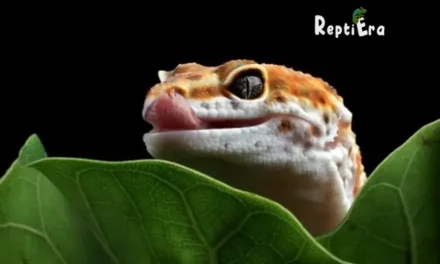
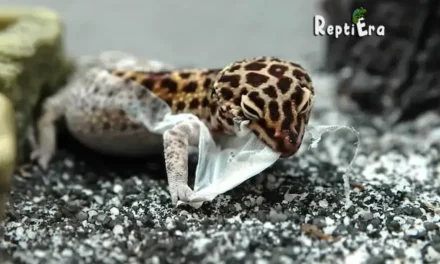
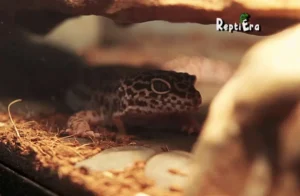

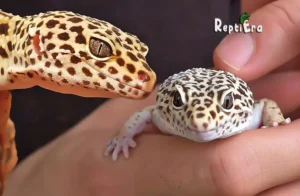
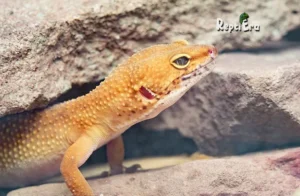
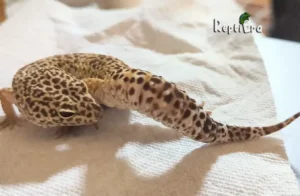
Thanks for sharing. I read many of your blog posts, cool, your blog is very good.